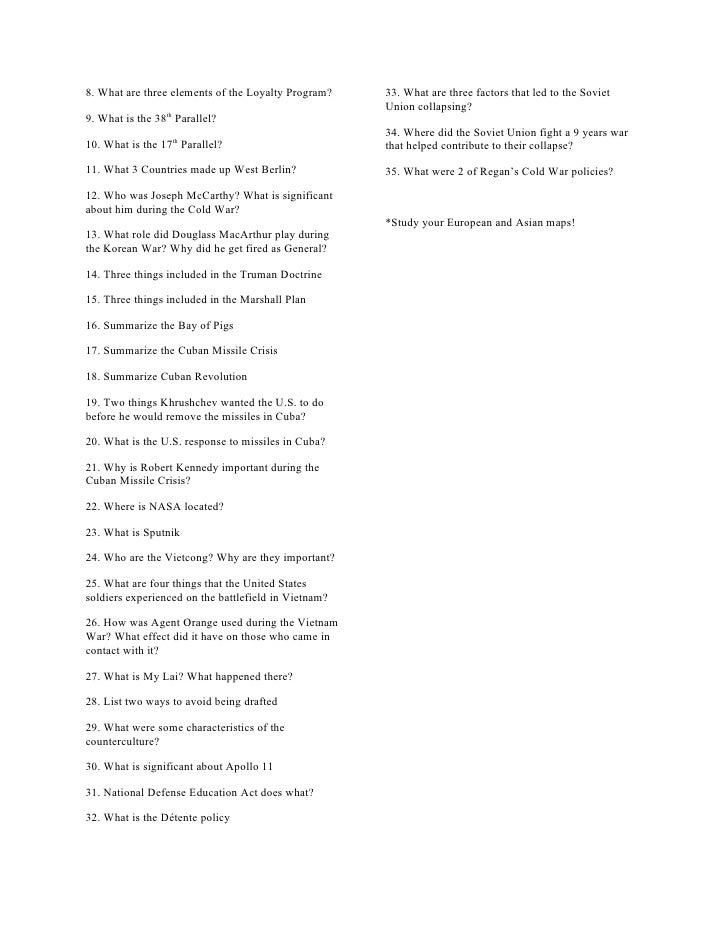World Wars And Cold War Study Guide
Gorbachov was leader of the USSR during the late 1980s and early 1990s. During this period the USSR was in deep financial trouble from military spending and ineffective domestic policies. Gorbachov attempted economic reforms that would bring aspects of capitalism to the Soviet economy and opened talks with the USA that would bring an end to the military spending associated with the Cold War. By the mid-1990s the USSR had, essentially, gone bankrupt, Eastern European countries were demanding independence, and the Soviet economy and government collapsed. The collapse of the Soviet Union led to independence for countries of Eastern Europe that had been under Soviet control/influence since WWII.
During the last 10 years most of these countries have moved towards democracy and capitalism and have established much closer ties to Western Europe and the United States. Additionally, former republics of the Soviet Union have become independent countries, with Russia the largest, Germany has been reunited as a single country, and Yugoslavia has divided into a number of small countries.


Cold War Study Guide Answers

Cold War Study Guide Quizlet
War was an omnipresent possibility in early twentieth century Europe because of four main factors. Militarism was important because lately many countries had been building up their armed forces. Allia nces were key becaus e if one country woul d go to war, their alliance with another country would bring more countries into war. Imperialism was also an important part because as nations took over other nations the want to rule and conquer grew even stronger. Nationalism was also vital because the loyalty to the country caused entire countries, not just soldiers to become involved. These for components combined made Wor ld W ar I inevitable in the beginning of the twentieth century. Breakthrough was such an important military goal on the Western Front because there had been a stalemate after the failed Schlieffen Plan that was halted at the First Battle of the Marne.
The Germans and French were both engaged in a trench warfare that lasted much longer than each of them had expected. This caused the German invasion of V erdun, also a failed attempt. The Russians attacked Germany in the Battle of T annenberg and the Battle of Masurian Lakes, but failed their attempt to. The war was not really going anywhere, and that was why it was so fundamental for each side to break the stalemate. T otal W ar and Global W ar are the ideas that the war is not just fought on the battlefield but everywhere in each of the participating countries. Total War involved the women participating in factories, and having everyone possible contribute metal from pots to be made into weapons to aid the war effort. T otal W ar and Global W ar also came with the conscription for the army.
Cold War Study Guide
Planned economies were set up to try and combat the enemy in the most ways possible. It was Global War in the way that it was taking place all over Europe, with soldiers from the United States, Australia, and other places also fighting.